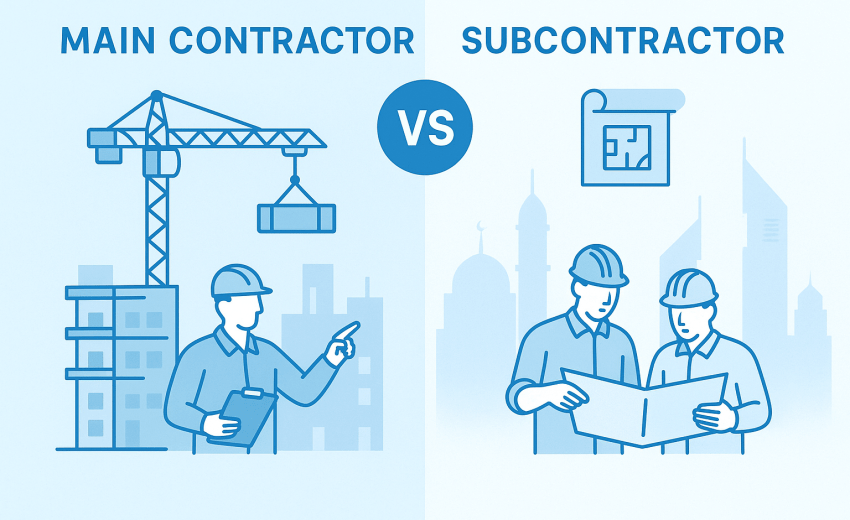
Benefits play a pivotal role in deciding whether to hire a main contractor or work with subcontractors in any construction project. Both approaches offer unique advantages depending on the project’s size, scope, budget, and timelines. As Charminar continues to deliver engineering excellence across the UAE, understanding these differences can help clients and developers make more informed decisions. Below are the 7 key differences between main contracting and subcontracting and how they impact project success.
1. Project Ownership and Responsibility
A main contractor assumes complete responsibility for the entire project. They oversee planning, procurement, manpower, and delivery. In contrast, subcontractors are only responsible for specific components of the work, such as electrical or plumbing installations. One of the main benefits of choosing a main contractor is having a single point of accountability.
2. Coordination and Communication
Main contractors manage communication among architects, engineers, suppliers, and clients. They ensure seamless coordination between various trades. Subcontractors, however, are only concerned with their designated tasks and usually communicate through the main contractor. A benefit of using subcontractors is specialization, but it may complicate direct communication.
3. Scope of Work
The scope for main contractors covers a project’s entirety — from groundwork to final handover. Subcontractors are appointed to complete narrower tasks. For example, a tiling subcontractor focuses solely on that aspect. The benefit of this model lies in its flexibility — it allows for expert execution of niche work without committing to full project management.
4. Risk and Liability
Main contractors bear greater risk, covering project delays, budget overruns, and legal liabilities. Subcontractors have limited risk, mostly tied to their specific output. The benefit of subcontracting from a financial perspective is reduced exposure, especially for clients managing smaller-scale operations.
5. Cost Structure
Main contractors charge a comprehensive fee that includes management, labor, materials, equipment, and risk coverage. Subcontractors typically charge only for their portion of work. While hiring subcontractors may seem cheaper at first, the benefit of main contracting includes fewer chances of hidden costs due to miscommunication or scope gaps.
6. Quality Control
Main contractors implement company-wide quality control processes to ensure consistency across all project phases. Subcontractors may follow their own standards unless specifically outlined in contracts. If quality is a major concern, one of the benefits of main contracting is unified control and delivery expectations.
7. Legal and Contractual Structure
Main contractors sign a single contract with the client. They then manage multiple subcontractors under separate contracts. Subcontractors only deal with the main contractor, not the client. The benefit here is streamlined legal responsibility for the client, as disputes and liabilities are filtered through one contract instead of several.
When to Choose Each?
If you’re managing a large, complex project that requires consistent execution, the benefits of working with a main contractor are clear. They reduce your management burden, enforce timelines, and provide a structured framework. However, if your project is specialized or you already have a reliable in-house team for certain parts, hiring subcontractors can offer cost and flexibility advantages.
Conclusion
Choosing between main contracting and subcontracting depends on your project’s complexity, budget, timeline, and quality expectations. By understanding these 7 key differences, you can better align your project strategy with your long-term goals. Let Charminar help you unlock the true benefits of construction excellence in every form.
Ready to Build with Confidence?
Get in touch with Charminar to learn how our project management expertise can streamline your next development.
📧 contact@bluediamondfm.com
📞 +971 56 705 4223
🌐 https://charminardubai.com/







